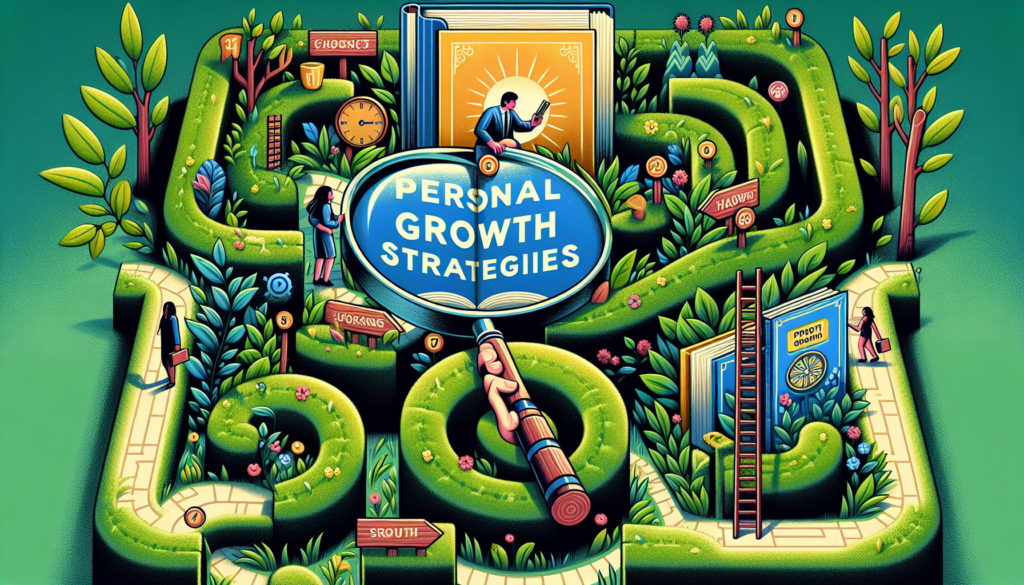Mastering Stress: A Comprehensive Guide to Stress Management Strategies
Welcome to a world where stress seems to be an inevitable part of our everyday lives. From work deadlines to personal relationships, financial worries to health concerns, stress can manifest in various forms and impact our well-being in profound ways. In this article, we delve into the realm of stress management strategies, exploring effective techniques to cope with and reduce stress levels. Join us on this insightful journey as we uncover the intricacies of stress management and learn how to navigate the challenges that come our way.
The Anatomy of Stress
Before we delve into stress management strategies, it is crucial to understand the underlying mechanisms of stress. When we encounter a stressful situation, our bodies go into a ‘fight or flight’ response, releasing hormones such as cortisol and adrenaline. While this response is essential for survival, chronic stress can have detrimental effects on our physical and mental health.
Research has shown that prolonged stress can lead to a myriad of health issues, including high blood pressure, weakened immune system, and increased risk of heart disease. Moreover, stress can also take a toll on our mental well-being, contributing to anxiety, depression, and burnout. By learning to manage stress effectively, we can protect our health and enhance our overall quality of life.
Effective Stress Management Strategies
1. Mindfulness and Meditation
One of the most powerful tools for managing stress is mindfulness and meditation. By practicing mindfulness, we can cultivate a sense of awareness and presence in the moment, allowing us to observe our thoughts and emotions without judgment. Meditation techniques, such as guided imagery and deep breathing, can help calm the mind and reduce stress levels significantly.
Research has shown that regular mindfulness practice can lower cortisol levels, reduce symptoms of anxiety and depression, and improve overall well-being. By incorporating mindfulness into our daily routine, we can build resilience to stress and cultivate a sense of inner peace.
2. Exercise and Physical Activity
Physical activity is another effective stress management strategy that can have profound benefits for both the body and mind. Exercise releases endorphins, also known as ‘feel-good’ hormones, which can help alleviate stress and elevate mood. Whether it’s going for a run, practicing yoga, or hitting the gym, finding an exercise routine that suits your preferences can be a game-changer in stress management.
In addition to its mood-boosting effects, regular exercise can also improve sleep quality, boost self-confidence, and enhance overall physical health. By making time for physical activity in our busy schedules, we can combat stress effectively and improve our overall quality of life.
3. Healthy Lifestyle Choices
It’s no secret that our lifestyle choices have a significant impact on our stress levels. Eating a balanced diet, getting an adequate amount of sleep, and staying hydrated are essential components of stress management. By fueling our bodies with nutritious foods, prioritizing rest and relaxation, and staying hydrated, we can support our bodies in coping with stress more effectively.
Moreover, avoiding excessive caffeine and alcohol consumption, as well as reducing screen time and practicing good time management, can also help reduce stress levels. By making conscious choices that prioritize our well-being, we can create a more resilient and stress-resistant lifestyle.
4. Social Support and Connection
Human connection is a fundamental aspect of stress management. Maintaining strong social connections and seeking support from friends, family, or support groups can provide a sense of comfort and belonging during challenging times. Talking to someone about our stressors, sharing our feelings, and seeking advice can help us gain perspective and alleviate the burden of stress.
Research has shown that individuals with strong social support networks are better equipped to cope with stress and maintain positive mental health. By nurturing our relationships and fostering meaningful connections, we can create a supportive environment that promotes resilience and well-being.
5. Time Management and Prioritization
Effective time management is key to reducing stress and maintaining a sense of control in our lives. By prioritizing tasks, setting realistic goals, and creating a structured schedule, we can avoid feeling overwhelmed and prevent stress from building up. Breaking down large tasks into smaller, manageable steps can help us tackle challenges one at a time and maintain a sense of progress.
Utilizing tools such as to-do lists, calendars, and time-blocking techniques can help us stay organized and focused on our priorities. By allocating time for work, relaxation, and self-care, we can strike a balance that promotes productivity and well-being.
6. Cognitive Behavioral Therapy (CBT)
Cognitive Behavioral Therapy (CBT) is a widely used therapeutic approach that can be effective in managing stress and improving mental health. By identifying and challenging negative thought patterns, beliefs, and behaviors, CBT helps individuals develop healthier coping mechanisms and adaptive responses to stressors. Through CBT, individuals can learn to reframe their perspectives, build resilience, and cultivate a more positive outlook on life.
Research has shown that CBT can be particularly beneficial for individuals experiencing chronic stress, anxiety, and depression. By working with a trained therapist, individuals can learn practical techniques to manage stress, enhance self-awareness, and develop skills for long-term well-being.
Expert Opinions
We reached out to Dr. Sarah Johnson, a renowned psychologist specializing in stress management, for her insights on effective stress management strategies. According to Dr. Johnson, “In my clinical experience, I have found that a holistic approach to stress management is most effective. By addressing the physical, emotional, and cognitive aspects of stress, individuals can develop a comprehensive toolkit for coping with stressors.”
Dr. Johnson also emphasizes the importance of self-care and self-compassion in stress management. “Practicing self-care is essential for maintaining emotional well-being and building resilience to stress. By prioritizing activities that bring joy, relaxation, and fulfillment, individuals can recharge their batteries and face stressors with a renewed sense of energy and optimism.”
Conclusion
As we wrap up our exploration of stress management strategies, it is evident that stress is a universal experience that requires attention and proactive coping mechanisms. By incorporating mindfulness and meditation, exercise and physical activity, healthy lifestyle choices, social support and connection, time management and prioritization, and cognitive behavioral therapy into our daily lives, we can build resilience, reduce stress levels, and enhance our overall well-being.
Remember, stress is a natural part of life, but how we respond to it can make all the difference. By taking proactive steps to manage stress effectively, we can cultivate a sense of balance, peace, and empowerment in the face of life’s challenges. Let’s embrace the power of stress management strategies and take control of our well-being today.


